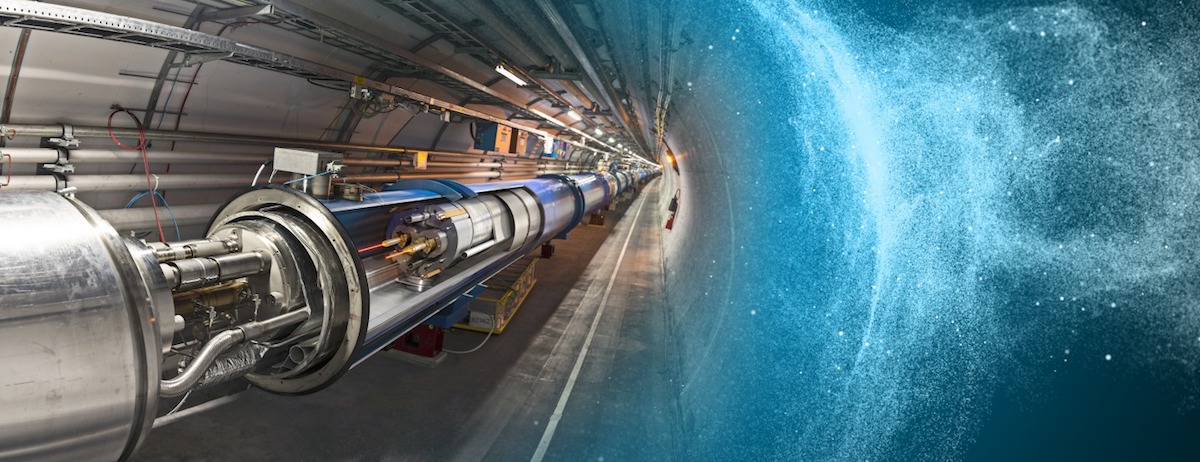Has the Large Hadron Collider Disproved the Existence of Ghosts?

The Large Hadron Collider (LHC) might be the world's most incredible science experiment. A particle collider seventeen miles in circumference, it accelerates protons to velocities approaching the speed of light and slams them together. Enthralled scientists from all over the world watch the subatomic demolition derby and record what happens. Thus far, they've witnessed the creation of quark-gluon plasma (the densest matter outside of black holes), found key evidence against supersymmetry, and discovered the Higgs boson, a result which garnered the Nobel Prize in Physics.
Much of the general public probably isn't aware of these fascinating, yet unfortunately, esoteric discoveries at the LHC. Particle physics simply doesn't inspire as much interest as say, ghosts. At least four in ten Americans believe in ghosts, and it's likely that even fewer people are aware of the LHC. On that note, at least one physicist contends that the LHC has, in fact, disproved the existence of ghosts.
The physicist in question is Brian Cox, an Advanced Fellow of particle physics at the University of Manchester and a popular science communicator in Britain. On a recent broadcast of BBC Radio Four's The Infinite Monkey Cage centered around science and the paranormal, Cox had this to say on the topic:
"Before we ask the first question, I want to make a statement: We are not here to debate the existence of ghosts because they don't exist."
He continued:
"If we want some sort of pattern that carries information about our living cells to persist then we must specify precisely what medium carries that pattern and how it interacts with the matter particles out of which our bodies are made. We must, in other words, invent an extension to the Standard Model of Particle Physics that has escaped detection at the Large Hadron Collider. That's almost inconceivable at the energy scales typical of the particle interactions in our bodies."
Astrophysicist Neil deGrasse Tyson, who was also on the show, pressed Cox to clarify his statement.
Sign up for the Live Science daily newsletter now
Get the world’s most fascinating discoveries delivered straight to your inbox.
"If I understand what you just declared, you just asserted that CERN, the European Center for Nuclear Research, disproved the existence of ghosts."
"Yes," Cox replied.
"I would say if there's some kind of substance that's driving our bodies, making my arms move and legs move, then it must interact with the particles out of which our bodies are made. And seeing as we've made high precision measurements of the ways that particles interact, then my assertion is there can be no such thing as an energy source that's driving our bodies."
While there are numerous scientific explanations that effectively debunk the paranormal, this was a novel contention. And it makes sense. If ghosts are impinging on the physical world, then surely their wispy trails would be detected by physicists. Unsurprisingly, this hasn't happened.
Original article on RealClearScience.










